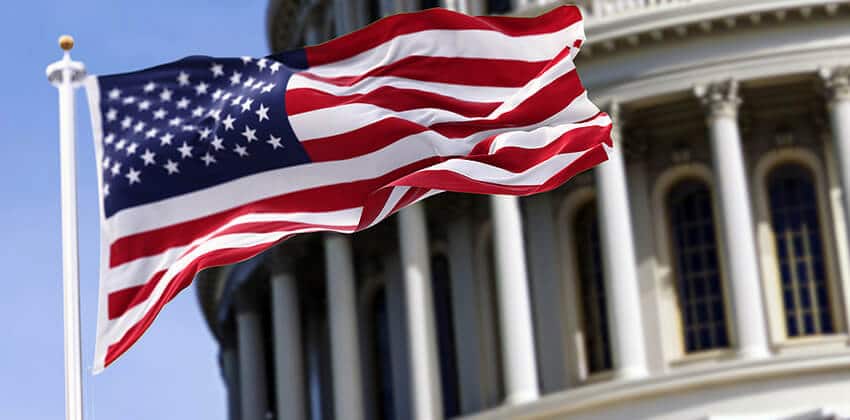
Congratulations! Your federal resume landed you an interview! Are you prepared?
Federal interviews are not something you want to plan for at the last minute.
“Winging it” is not a good idea — it’s a guarantee of disaster!
A organized approach is your best method to prepare for your federal job interview.
Start at least 24 hours before your interview, and starting a week before your interview is a much better idea, if possible.
How to Prepare for Your Federal Job Interview
You cannot afford to NOT ace this interview because it is too difficult to get these federal interview opportunities.
1. Analyze the Job Announcement
Study the job announcement. Read every single word from top to bottom. The foundation of the interview can be interpreted from the job announcement.
- Evaluate the Duties Section.
Start by reviewing the job duties you will be expected to perform. Write down specific examples of your on-the-job experience that demonstrate your ability to carry out these duties. Be prepared to describe this experience and how you acquired these skills to the interviewer. - Review the Job Requirements Section.
Write down how you meet each and every of the specified Qualifications. - Examine the How You Will Be Evaluated Section.
Most job announcements present evaluation factors in terms of the knowledge, skills, and abilities candidates should possess. Prepare a written answer for each evaluation factor. Find this section by clicking on “How to Apply” on the announcement.
Your goal in the interview is to make it clear how you meet the requirements for this job, and you will do your best if you know that job description extremely well.
Advertisement
2. Create 5 Relevant Success Stories
Using your notes from your study of the job announcement, build accurate personal success stories that demonstrate you are the ideal candidate for this job.
In preparing your response, start by describing the challenge you faced, the actions you took, and the results you achieved.
For each point, create a story that clearly demonstrates you have the specialized experience they are looking for. Be descriptive, thorough, concrete, and performance-oriented.
- Did you save money?
- Did you improve morale?
- Did you save time?
- Did you improve quality?
- Did you improve processes?
- Did you create or improve something?
- Did you excel under pressure?
- Did you beat a deadline?
- Did you manage an emergency?
- Did you solve, provide key support in in solving, or lead the efforts to solve a major problem?
Think about how you impacted the organization and describe it in the Situation-Task-Challenge-Action-Result-Impact (STCARI™) Method of Writing format.
Have at least 5 “success stories” in your hip pocket, and practice describing them out loud, preferably to a friend or family member who is at least somewhat familiar with them and with the job you are trying to land (see number 6 below).
You want to be very comfortable describing your successes, which is hard for some of us because it feels like bragging. Remember, when you are stating facts, you are NOT bragging.
3. Prepare a Story Summary for Your Interview
Make it easy for them to see that you are a perfect fit for the job. Prepare a “story summary,” one that is relevant to the job announcement, by pulling together key elements of your 5 success stories.
Perhaps there is a theme running through that is relevant to the job you are interviewing for — maybe you have often improved processes to save money or you are the go-to person in emergencies.
Your story summary is the core of your answer to the “Tell me about yourself” question. Prepare something interesting that will pique their interest and is relevant to the specialized experience and core competencies of the job announcement.
Don’t be long-winded or boring. Be lively, enthusiastic, and memorable. Connect what you have to say with why you are right for the position. Once you have written your “story,” run it by a few trusted friends or colleagues, and it never hurts to hire a professional for feedback.
More: Answering the Job Interview Question: Tell Me About Yourself and Guide to Successful Job Interviews
4. Research the Federal Agency
Read everything you possibly can about the organization or agency. Read the website thoroughly! Research the leadership, organizational mission, culture, reports, and anything else you can get your hands on.
After you have read everything you can find, try to locate people who currently work for them, and even former employees. Ask them questions about their experiences with the organization.
Learn everything you can about the organization’s strengths, weaknesses, and long-term goals. Call it networking or informational interviews — learn as much as possible.
Do not take any shortcuts here — if you lack knowledge about the organization, the interviewer will know.
More: The Winning Difference: Pre-Interview Preparation
Use social media — LinkedIn, Facebook, Twitter, and Instagram to monitor agency announcements and events.
Also, create Google Alerts for agencies where you hope to interview so you will be able to keep current on what is happening. Google Alerts are a tool that will send you an email any time keywords that match the search criteria that you set up about a specific topic. Visit www.google.com/alerts to get started.
More: 5 Ways to Use Google Alerts for Your Job Search
5. Clean Up Your Online Profiles
Federal hiring officials do research candidates on social media before interviewing or hiring you. Delete inappropriate tweets and comments on LinkedIn. Go through your Facebook posts and comments, delete what is inappropriate, and adjust your privacy settings.
Also, adjust your attitude, if necessary, to remember that your posts and comments are visible to others, potentially including your next boss!
Once you get your social media cleaned up, KEEP it that way!
To counter any inappropriate content, post professional content on your LinkedIn profile. Answer questions in groups and even on Quora. Show your value in contributing to relevant content, and don’t make cranky or profane comments.
More: Guide to Online Reputation Management and Repairing Your Online Reputation with Social Media
6. Practice with a Friend
When you think you’re ready, ask a friend to role play. Mock interviews are an excellent way to polish your presentation. Practice until you are fully confident. Ask your friend to throw some of the common interview questions your way
Bottom Line on Federal Job Interview Success
Be prepared. Be prepared. Be prepared. Government agencies need top performers, and they are scoring you against your competition in terms of performance. A federal interview will require your best efforts. Give it everything you have got. Be enthusiastic about how you can contribute to public service. You got this!
 About the author…
About the author…
Job-Hunt’s Federal Job Search Expert, Camille Carboneau Roberts, established CC Career Services in 1989 to provide total career management services to help clients land jobs faster. Expert services include federal resumes, private sector resumes, military-to-federal resumes, and social media resumes and profiles. Contact Camille via email at [email protected], through LinkedIn, Twitter (@CamilleRoberts), or Facebook (CC Career Services).
More about this author…
Don't forget to share this article with friends!




